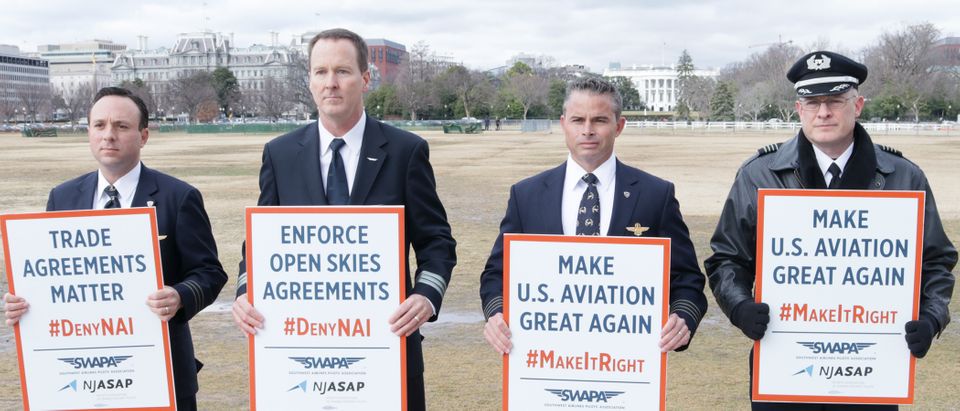Enter “The Subsidy War,” a conflict quietly raging between three major U.S. flag air carriers (US3) American, Delta, and United, and Gulf air carriers (ME3) Qatar, Etihad, and Emirates. The US3 contend the governments of Qatar and the United Arab Emirates (UAE) have subsidized the ME3 to the tune of $52 billion, while the ME3 vehemently deny this.
The situation escalated further when Emirates opened new routes directly to the U.S. in January. The US3, viewing this as a hostile incursion into their traditional markets, have now asked the U.S. government to renegotiate the Open Skies agreements of Qatar and the UAE as redress.
If the US3 are successful, the victims will be American workers and the U.S. economy.
Under the Open Skies agreements in 2014, the ME3 brought 1.1 million international visitors to U.S. markets, and each visitor spends, on average, a total of $4,300 when travelling overseas. These visitors contributed over $4.1 billion to the U.S. GDP, supported nearly 50,000 American jobs, and generated $1.1 billion in federal, state, and local tax revenue.
Other U.S. passenger and cargo airlines, hotels, restaurants, and the broader travel and tourism community don’t support the US3’s request to freeze new routes and capacity from ME3 airlines. The fact of the matter is that the ME3 drive thousands of travelers and millions in revenue directly to U.S. legacy air carriers. Nearly 30 percent of all ME3 passengers to the U.S. transferred flights directly to U.S. airlines in 2014.
Interestingly enough to note, the US3’s renegotiation request is being represented by Hillary Rosen, a Never Trump liberal lawyer, who recently attacked another lawyer on Twitter for the crime of representing Ivanka Trump. Ironically enough, Rosen is bashing the Trump administration on one front, while attempting to cozy up to them for crony business deals on the other.
The U.S. Travel Association, a national, non-profit organization that represents large swaths of the travel industry, supports utilizing the existing Open Skies framework to process and resolve disputes between air carriers. However, they maintain this process should only be utilized when substantiated violations of the agreement exist.
Roger Dow, President and CEO of the U.S. Travel Association, recently proclaimed, “The U.S. has negotiated more than 100 Open Skies agreements. They’ve become the cornerstone of airline competition, and delivered lower fares for travelers, and brought millions of more international visitors to the U.S.”
“But, after benefiting from these agreements for more than two decades, a few U.S. airlines want to turn back the clock, pushing for policies that’ll mean less competition, less capacity on popular routes, and fewer international visitors to the U.S. for burgeoning markets,” Dow continued, concluding, “We believe in expanding competition in air service, not restricting it, for the benefit of travelers, and our economy as a whole.”
Furthermore, over 52 percent of inbound traffic to the U.S. on Gulf flights originated in South Asia, compared to less than 1 percent for U.S. carriers. Similarly, nearly 30 percent of Gulf carrier traffic to the U.S. came from the Middle East, compared to just 3.7 percent for U.S. carriers.
This means that both markets underserviced by U.S. carriers benefit, as well as those in the continental U.S.
Additionally, continuity of the current Open Skies system means lower fares for travelers across the globe. Economists have also reported that fares have fallen 32 percent on routes subject to Open Skies agreements versus those of regulated markets. Open Skies agreements have generated approximately $4 billion in traveler benefits according to the U.S Travel Association.
In order to safeguard American jobs and interests, we must end The Subsidy War before this deadly “arms race” escalates further. In order to preserve the world’s open airways, we must preserve Open Skies.


